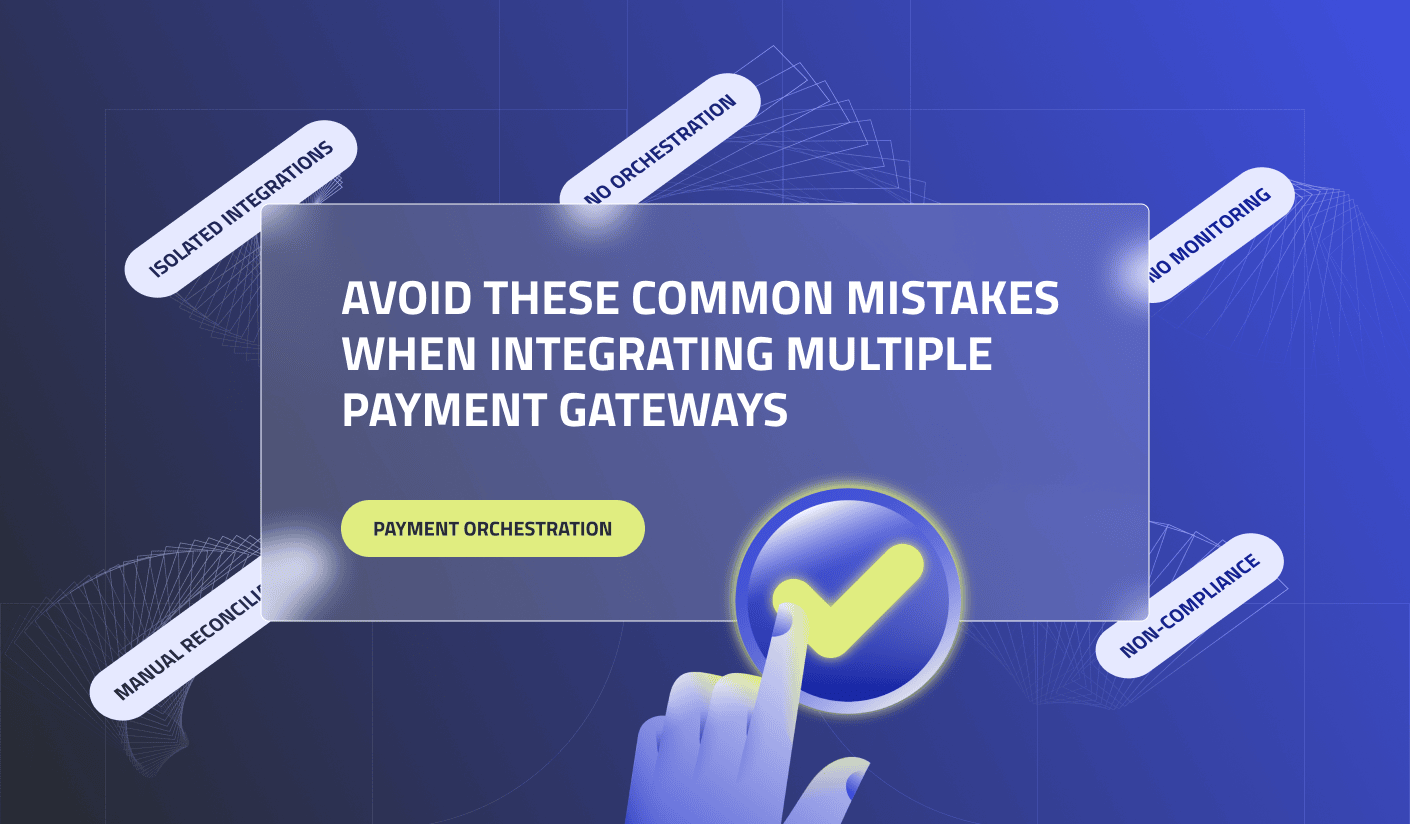Merchant-Relevant Reasons to Adopt External Payment Orchestration
%20(1)%20(1).jpg)
Enterprise merchants operating across regions and channels face a universal challenge: managing increasingly complex, fragmented, and performance-sensitive payment operations.
When a single provider isn’t enough, and internal development becomes a bottleneck, external orchestration offers a strategic path forward.
In this guide, we explore why global merchants are moving away from static PSP setups and embracing orchestration as the new standard—one built for agility, efficiency, and growth.
Why are more merchants turning to external orchestration?
Payments are now deeply tied to business performance. Acceptance rates, operational costs, time-to-market, fraud risk, and even UX—all hinge on how well payments are managed.
External orchestration helps merchants:
- Expand globally without building new integrations from scratch.
Optimize routing and reduce declines to increase revenue. - Unify fragmented operations into a single, manageable interface.
- Avoid dependency on any single provider or acquirer.
These are not IT problems—they’re merchant pain points with direct impact on growth and margin.
What merchant pain points does orchestration solve?
Here are some of the most common pain points orchestration solves:
- Low authorization rates in key regions or with specific issuers.
- PSP outages causing downtime and lost revenue.
- High operational cost due to manual reconciliation or fraud disputes.
- Limited flexibility to support local payment methods during expansion.
- Developer backlog every time a new PSP or APM is needed.
Orchestration helps increase approval rates, improving payment performance from day one with smart routing.
How does orchestration impact revenue?
The connection between orchestration and revenue is simple: more approved transactions = more revenue.
Orchestration increases approval rates by:
- Routing transactions intelligently based on card BIN, issuer behavior, or region.
- Applying retry logic to rescue failed payments.
- Dynamically triggering 3DS or other authentication methods only when necessary.
- Testing and benchmarking PSP performance over time.
Even small improvements in approval rate can recover millions.
Can orchestration reduce merchant costs?
Absolutely. External orchestration lowers operational and payment processing costs by:
- Automatically routing to the lowest-cost provider for each transaction.
- Reducing chargebacks through built-in fraud tools and logic.
- Consolidating vendor management and reducing internal development.
- Enabling faster reconciliation across multiple acquirers.
Orchestration also helps merchants avoid common mistakes when integrating multiple PSPs or fraud providers that often create hidden inefficiencies.
What is the impact on conversion and customer experience?
Payment experience is conversion-critical. Orchestration helps merchants:
- Show the right local payment methods based on user profile.
- Offer one-click checkout and tokenized card reuse.
- Avoid hard declines and redundant authentication steps.
- Reduce friction during peak shopping moments.
This leads to higher completion rates at checkout.
What risks does orchestration mitigate?
Merchants relying on a single PSP risk:
- Being locked into limited pricing or feature roadmaps.
- Suffering from single-point-of-failure outages.
- Missing local market opportunities due to integration delays.
External orchestration removes that dependency by allowing merchants to switch or add providers with no code, keeping their stack future-proof and resilient.
How fast can merchants implement a solution like Yuno?
With Yuno, merchants can go live with payment orchestration in just a few weeks. Thanks to our pre-built connectors, orchestration logic, and modular infrastructure, new markets and PSPs can be activated with minimal developer input.
If you’re launching or scaling internationally, learn how Yuno can simplify payment connections for global expansion.
What makes Yuno different from PSP-native tools?
Yuno is not tied to any one acquirer, payment method, or fraud provider. We are provider-agnostic and built to give merchants full control of their stack.
Unlike PSP-native “orchestration,” which prioritizes their own infrastructure, Yuno optimizes for your performance and gives you the freedom to test, compare, and configure based on what works for your business.
You can continue working with your current providers, or discover better-performing alternatives through our platform.













